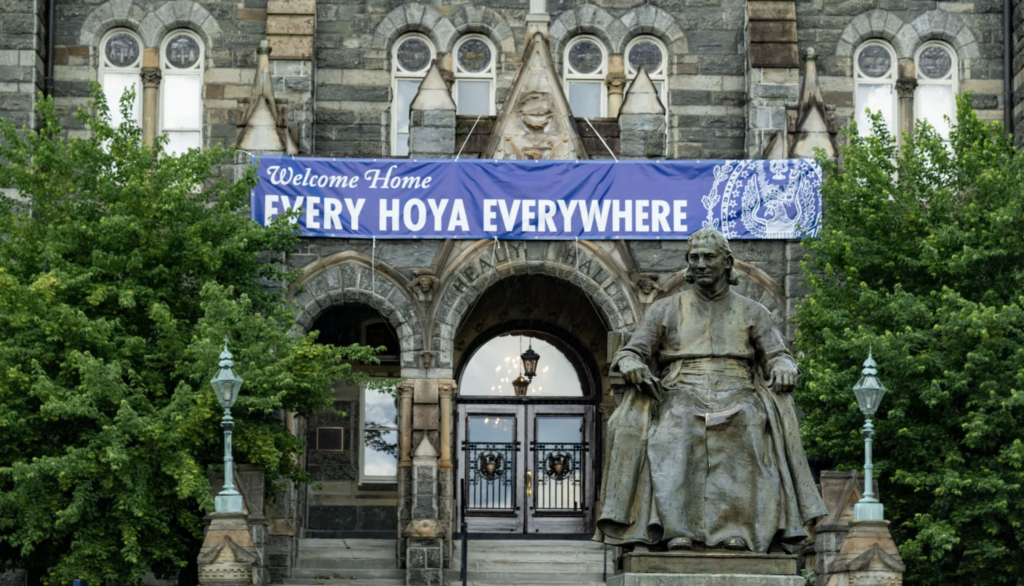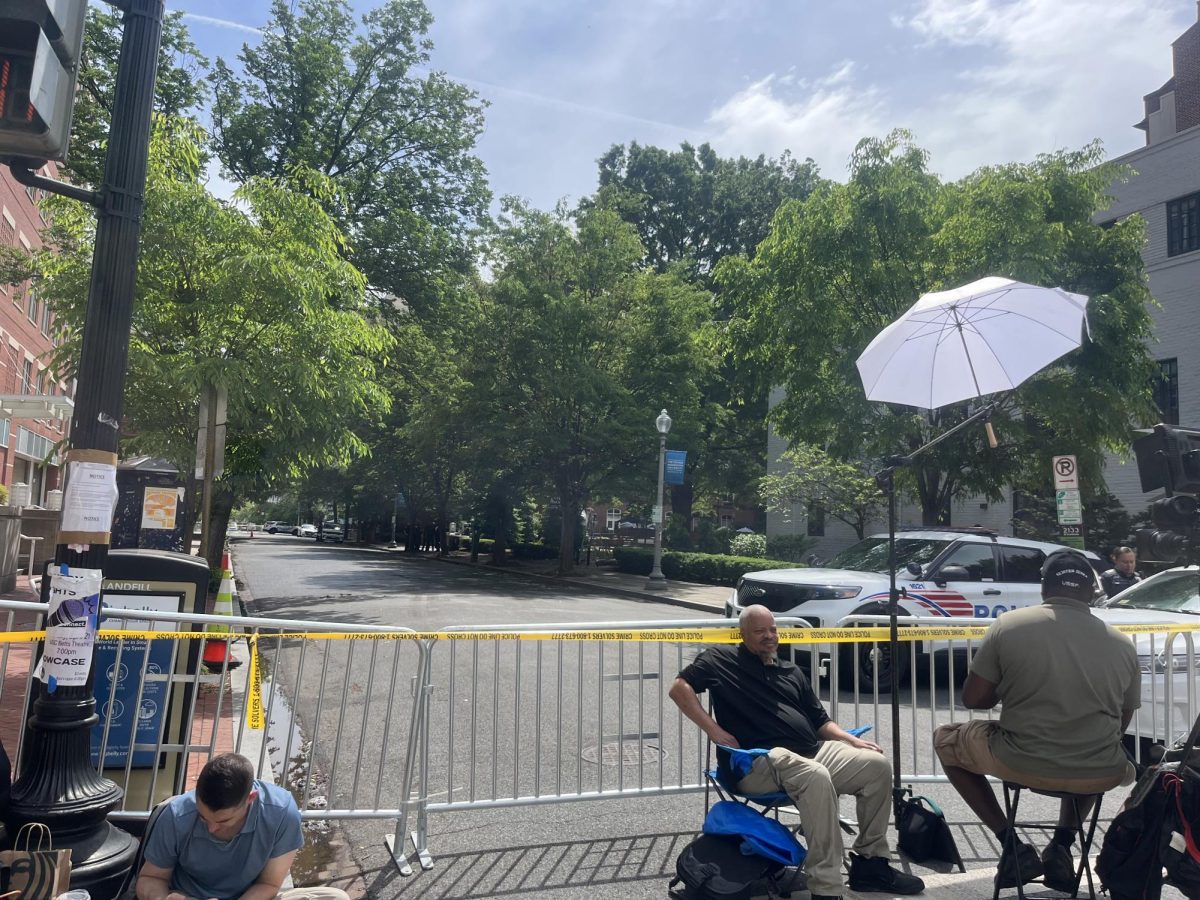Georgetown University undergraduate students will have the opportunity to take one of seven Summer Institute programs this summer, an initiative that introduces six new career-focused programs announced in an email to students Nov. 13.
The Summer Institute Programs, which are entering their second year, span 10 weeks from June 3 to July 9 and consist of 12 credit hours. Six of the seven programs are new for the summer of 2024, following the launch of the Summer Institute in Law last summer. Students in these programs will stay on the main campus with summer on-campus housing and meal plans at a discounted rate to take the courses in person.
Sandra Polanco (MSB, SFS ’24) was a member of the first cohort last year in the Summer Institute in Law. Polanco said this program allowed her to engage with the possibility of law school and interact closely with Georgetown’s government department.
“I was eager to engage more seriously with the prospect of law school, and this program gave me a taste,” Polanco wrote to The Hoya. “I loved the professors, and as a student who would have not traditionally engaged with the government department so intimately, I am extremely happy to have made these connections.”

Each of the seven institutes is cohort-based with various fields of study and potential career paths: The College of Arts and Sciences (CAS) hosts the Summer Institutes in Urban Studies, Tech & Society, Law and Health Professions; the Earth Commons Institute created the Summer Institute in Environment & Sustainability; the Institute for Women, Peace and Security developed the Gender, Identity & Global Policymaking program; and the Center for Security Studies hosts the Institute in National Security.
Sue Lorenson, the vice dean of undergraduate education and the director of the CAS Summer Institutes, said the deans and professors wanted to address with these new programs the pressures students face in making decisions about their summer experiences and postgraduate futures.
“We hope that, for some students, the institutes will be an exciting, immersive, meaningful opportunity to address all of these concerns,” Lorenson wrote to The Hoya.
Tad Howard, an associate dean in the CAS and dean outreach for the new Tech & Society program, said he believes the new different Summer Institutes will provide students with the opportunity to explore aspects of their intended major or future profession away from the stress and classes of the Fall and Spring semesters.
“One motivation of the institutes overall is to take advantage of summer in DC by building something more coherent around a single interest or idea, perhaps separate from students’ intended majors,” Howard wrote to The Hoya.
Howard said the Summer Institute in Tech & Society will allow students to build classroom and professional skills for businesses and tech organizations.
“We’re still building the experiential piece as we speak,” Howard wrote. “But students will be able to take what they’re learning in courses like Intro to Computer Science and Data Visualization with their institute cohort, apply it to projects in real-life settings.”
Erin Force, an associate dean in the College of Arts and Sciences and dean of outreach for the new Urban Studies Institute, said professors interested in urban ecosystems, sustainability, education, housing, policing and incarceration all contributed to developing summer coursework.
“When we were building the Institute, our goals were to give students the opportunity to fulfill some core requirements over the summer and to give those same students broad exposure to the field of urban studies, both inside and outside of the classroom,” Force wrote to The Hoya.
“It will provide the space for students to integrate their coursework, hear from urban planning professionals and scholars, and participate in community-based learning to deepen their understanding of the city,” Force added.
Howard said he encourages all students who are interested in one of the Summer Institutes to apply regardless of prior experience in the field or coursework.
“We don’t expect students to have any experience with this ahead of time,” Howard wrote. “In fact, we’re building it for students who may feel like they haven’t had time in the year alongside their ‘primary’ academic plans to gain essential skills like these.”
Polanco said the experience allowed her to explore Washington, D.C., in ways she was not able to over the school year while developing professional skills like conducting research. She said she encourages students to join one of the new cohorts for the institutes.
“Before this program, I wouldn’t have gravitated towards research or even thought that I had it in me to think so critically, but I truly surprised myself with the support of an incredible teaching staff,” Polanco said.




















